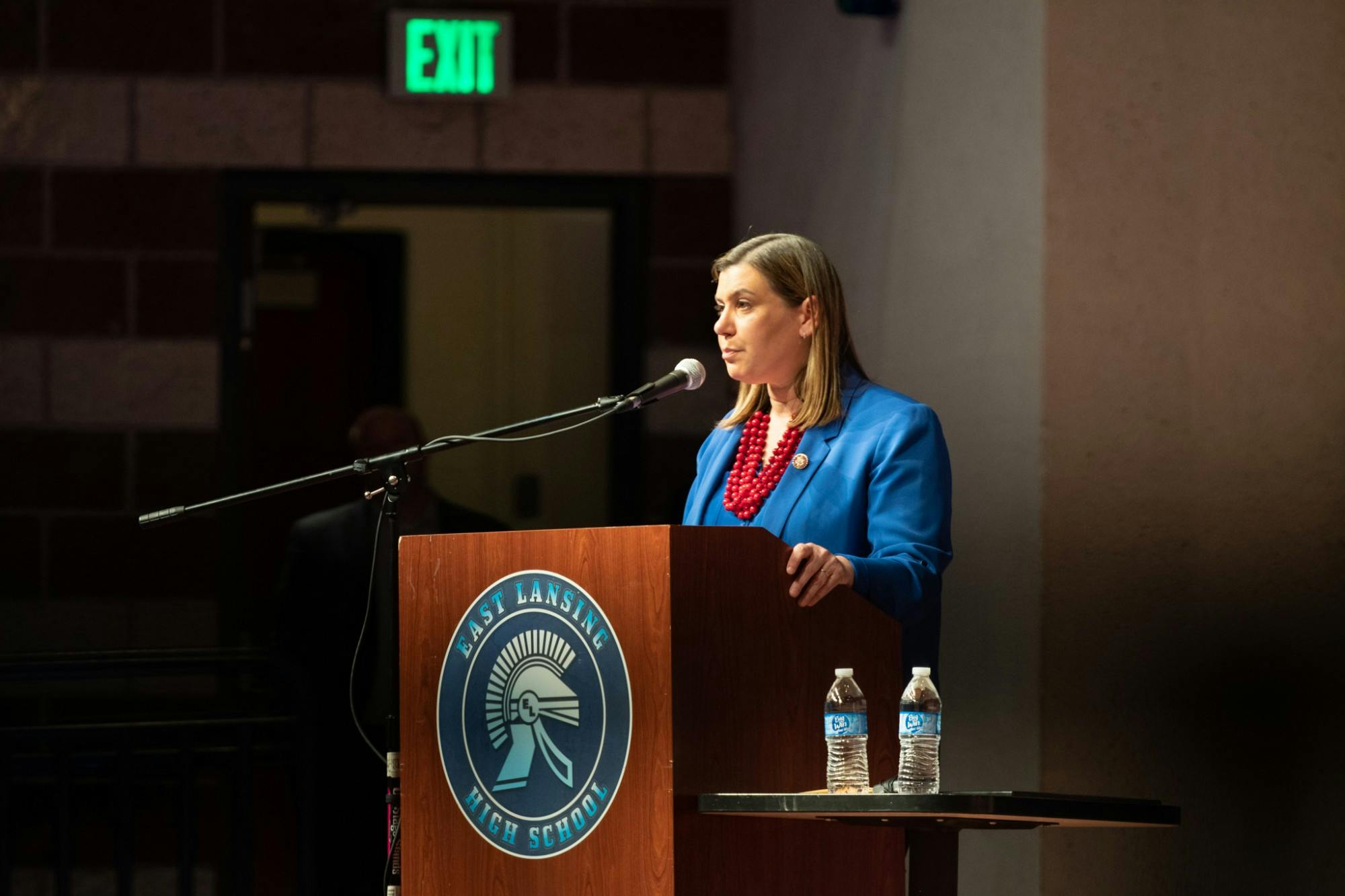"Now, I would have never had a Title IX claim to begin with," Amanda Thomashow, founder of Lansing's Survivor Strong, said.
In 2014, Thomashow made the first official Title IX complaint against former Olympic doctor, Michigan State physician and now-convicted sexual predator Larry Nassar. She said this complaint, which catalyzed an investigation into Nassar and MSU, would have never existed under the new Title IX rules created by the U.S. Secretary of Education Betsy DeVos.
The Democratic Women's Caucus hosted a roundtable discussion Monday about the Title IX changes via Facebook Live.
U.S. Rep. Elissa Slotkin (MI-08) invited local experts to discuss the effect of the new rules for college campuses as she and her colleagues asked questions.
"Secretary DeVos' rule demands more severe acts of violence than I endured, a more academic context than I occupied and a doctor's office that sits inside the geographical boundaries of (a) lecture hall for a sexual assault to warrant an investigation," Thomashow said.
U.S. Rep. Jackie Speier (CA-14) said the new rule "takes us back probably 30 or 40 years, that's how bad it is."
The new regulations make it even harder to protect students and to hold institutions accountable financially, which is the only way to incentivize student safety, Thomashow said.
Michigan Attorney General Dana Nessel, supported by Gov. Gretchen Whitmer, joined 17 other attorneys general in filing a lawsuit against the updated regulations earlier this month.
Thomashow said her complaint about Nassar created a paper trail for accountability at MSU.
The state's investigation into MSU's role regarding the inaction which followed Thomashow's 2014 complaint remains at an impasse because Nessel's office seeks about 6,000 documents MSU officials say are held under attorney-client privilege.
"This new rule would have excused MSU from any responsibility for the hundreds of young girls assaulted on their campus," Thomashow said. "DeVos saw the damage a paper trail could do when my Title IX complaint led to a $500 million settlement. Now, she is lighting the paper trail on fire, and along with it the chance for future campus accountability or justice."
Know Your IX Manager Sage Carson said the policy severely reduces student's rights in sexual misconduct cases under Title IX by requiring schools to dismiss violence that occurs outside of a university program or activity.
Carson said the DOE estimates that four-year institutions will now investigate 32% fewer sexual misconduct complaints.
University of California Systemwide Title IX Director Suzanne Taylor said these new regulations require sexual misconduct reports to be made to certain officials, such as a Title IX coordinator, and made by someone participating in school programs.
Additionally, the narrow definition of "sexual harassment" generally excludes single incidents of verbal harassment and some physical harassment regardless of severity, she said.
Schools must dismiss incidents that don't fall under these requirements from the Title IX process, Taylor said. This leaves schools to determine both a process that adheres to these new rules for cases that still fall under Title IX, but also determine a process for cases that do not, if any, she said.
Additionally, the regulations require a cross-examination session, often given by attorneys, which can be intimidating for both parties and any witnesses, Taylor said.
The U.S. Department of Education (DOE) has given schools approximately three months to comply in the middle of a global pandemic. Taylor said this is not enough time to thoroughly understand the rules change, revise policy and include consultation from community members.
MSU's Associate Vice President of the Office of Civil Rights and Title IX Education and Compliance Tanya Jachimiak said the university has designated a review group that will release a draft of the new policy once completed.
Executive Director of The Firecracker Foundation Tashmica Torok, said these regulations will affect children because the policy sets new rules for K-12 schools as well.
Support student media!
Please consider donating to The State News and help fund the future of journalism.
"We are talking about children here. This is not just about college campuses," Torok said. "We have already been failing our children when it comes to Title IX."
Slotkin also released a statement detailing additional explanation of the new regulations:
- The original 60-day recommendation for finishing misconduct investigations will be dropped. This allows schools to delay investigations.
- Schools will be allowed to use mediation to resolve sexual harassment complaints, including student-on-student sexual assault but not employee-on-student. Schools were previously prohibited from using mediation because it "assumes both parties share responsibility for the assault and often requires direct interaction between the assailant and survivor, which can be retraumatizing," the statement said.
- Schools will be prohibited from providing supportive measures that are disciplinary, punitive or unreasonably burden the other party. The statement explains this could force survivors to change their classes or dorm location.
Shiwali Patel of the National Women's Law Center said Congress could stop the new rule by investigating the DOE's process.
"Another thing that Congress could do would be to consider vehicles for blocking the rule or delay the effective date of the rule," Patel said.
These new regulations are slated to go into effect Aug. 14.
“From preventing survivors of Larry Nassar’s abuse from coming forward with a valid Title IX claim, to putting Title IX protections even further out of reach for children in K-12 schools, these rules fail to live up to what survivors like Amanda and Tashmica are asking of us as leaders: to keep students safe, and make it easier for survivors to come forward, not harder," Slotkin said.
Discussion
Share and discuss “Survivors, activists denounce new Title IX regulations in Democratic Women's Caucus roundtable” on social media.








